Fortran Allocate Character Array
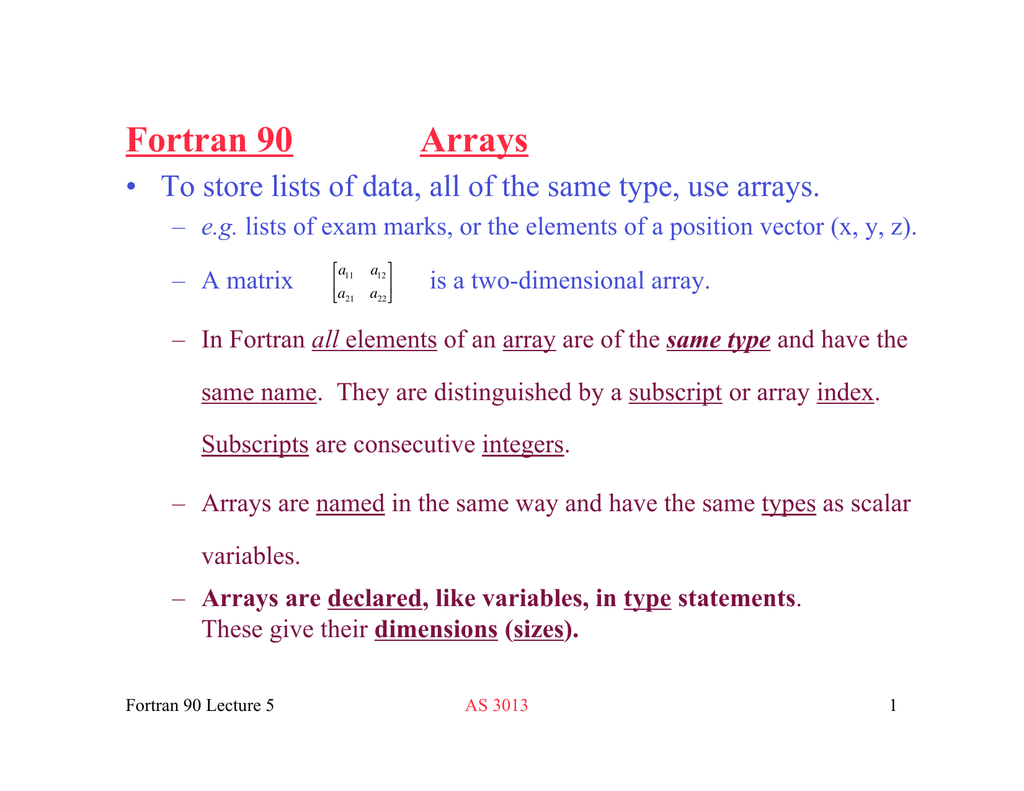
Fortran 90 Arrays
1
Web Pa Msu Edu
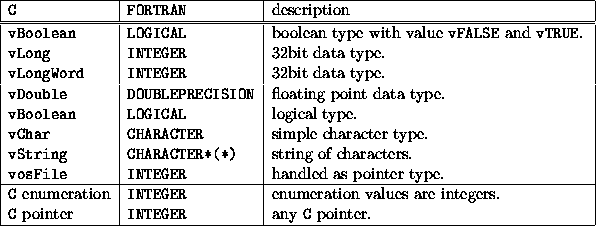
C Fortran Binding
Physics Udel Edu
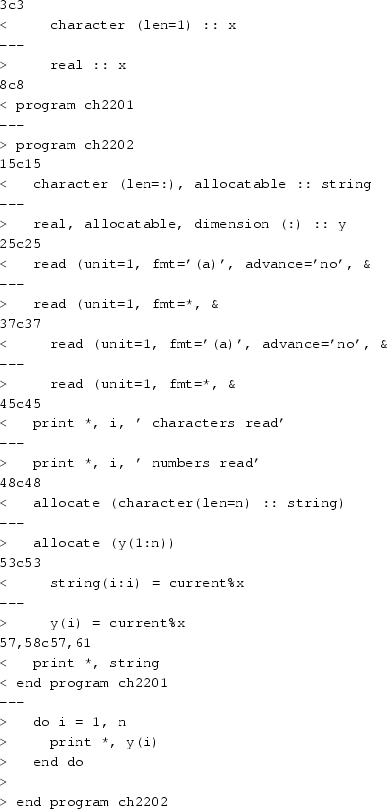
無料ダウンロード Fortran Allocate
Fortran Programming Language Allocatable (dynamic) arrays So far we have specified the size of our array in our program code—this type of array is known as a static array since its size is fixed when we compile our program Quite often, we do not know how big our array needs to be until we run our program, for example, if we are reading data from a file of unknown size.
Fortran allocate character array. Dynamic memory allocation So far in our examples the array dimensions have been defined at compile time memory allocation is static;. Data declaration A named constant array's shape can be implied by its value For details, see Impliedshape arrays;. As of Fortran90, arrays may be allocated/deallocated dynamically (prior to F90, the size of all arrays had to be hardcoded in the program) This previous deficiency is the main reason Fortran has such a bad reputation in the CS community (many do not know it.
The ALLOCATE statement creates space for allocatable arrays and variables with the POINTER attribute The DEALLOCATE statement frees space previously allocated for. Can I allocate a variable length character string?. The DIMENSIONAttributeAttribute 1/61/6 zA Fortran 90 ppgrogram uses the DIMENSION attribute to declare arrays zThe DIMENSIONattribute requires three components in order to complete an array specification, rank, shape, and extent zThe rank of an array is the number of “indices” or “subscripts” The maximum rank is 7 (ie, sevendimensional).
Fortran provides two ways to allocate memory dynamically for arrays. If an array size depends on the input of your program, its memory should be allocated at runtime memory allocation becomes dynamic;. ===== The strict answer to your question is just as with any other type, eg character(len=6), dimension(), allocatable array allocate (array(N)) However, I suspect you are concerned with the length of the.
Answer (1 of 6) Dynamic memory allocation is quite a useful concept in C language In order to allocate memory dynamically using C language the following code will. READ(*,*) input ALLOCATE(character(len=LEN(TRIM(input))) input_trim) input_trim=trim(input) END PROGRAM test It works fine with Intel's Fortran compiler, however gfortran gives me a couple of errors, the first one being in the line saying. Returning Character Data Types;.
Assumed length variables assume their length from another entity the dummy argument dummy_name has length that of the actual argument has length given by the constant expression on the righthand side Deferred length type parameters may vary during execution A variable with deferred length must have either the allocatable or pointer attribute. Legacy Extensions ATTRIBUTES Directive Options;. Arrays can have the allocatable attribute !.
This book covers modern Fortran array and pointer techniques, including facilities provided by Fortran 95, with attention to the subsets eLF90 and F as well It provides coverage of Fortran based data structures and algorithm analysis The principal data structure that has traditionally been provided by Fortran is the array Data struc. Two dimensional allocatable array real, dimension (,), allocatable bar This declares the variable but does not allocate any space for it !. Upper and lower bounds LBOUND(ARRAY) UBOUND(ARRAY) !.
ALLOCATE ( A(N) ) where N is an integer variable that has been previously assigned To ensure that enough memory is available to allocate space for your array, make use of the STAT option of the ALLOCATE command ALLOCATE ( A(N), STAT = AllocateStatus) IF (AllocateStatus /= 0) STOP "*** Not enough memory ***". Returns the size (the total number of elements) !. The interface declaration must always match the actual subroutine declaration In this case, the interface statement refers to a Fortran 90 style assumed shape array The actual subroutine refers to a Fortran 77 explicit shape array The lesson here is Interfaces to Fortran 77 style routines must only use Fortran 77 style constructs.
• In allocatablelength arrays all elements have the same length, and there is no automatic allocation on assignment Arrays require an explicit allocation, like this character(len=), allocatable array() allocate( character(len=100) array() ) And, of course, if you want to change the length you need to deallocate and reallocate. ALIAS Option for ATTRIBUTES Directive;. Building Intel® Fortran/C MixedLanguage Programs (Windows*) Implementation Specifics Fortran Module Naming Conventions;.
A FORALL index variable can have its type and kind explicitly declared within the construct;. Multiple typebound procedures can be declared in a single typebound. 3 Reading in array data A key feature of Fortran 90 that wasn’t available in Fortran 77 or earlier versions is the addition of ALLOCATABLE arrays With f77 you always needed to declare the size of the array at the onset of the program However, with the new syntax you can wait until later All you have to do is declare the shape.
Fortran 90 Free Form, ISO Standard, Array operations Fortran 95 Pure and Elemental Procedures Fortran 03 Object Oriented Programming Fortran 08 CoArrays Examples Installation or Setup Fortran is a language which can be compiled using compilers supplied by many vendors Different. Arrayvalued functions functions that return arrays Functions in Fortran 90 can even return arrays (or matrices) !. In addition to derived types, the TYPE type specifier is extended to declare entities of intrinsic types;.
Furthermore, the size of the array (or matrix) returned by the function can be defined using values that are derived from the input parameters This feature is extremely useful when you write functions that return matrices or vectors, whose size depends on the size of. allocate(character(n)string_array(m), stat=istat) rewind(1) do i=1,m read(1,'(A)') string Reading arbitrary width lines is quite awkward to do in standard Fortran but the Q edit descriptor helps a lot _type) array to some decent size, start reading in lines, tracking how many elements are in use, when the array is full allocate a new. Each character occupies 8 bits of storage, aligned on a character boundary Character arrays and common blocks containing character variables are packed in an array of character variables The first character of one element follows the last character of the preceding element, without holes The length, len must be greater than 0.
In Fortran 03 character variables could be declared allocatable, that is to have a length that can be varied at runtime Even better, the length of a variable is set or reset automatically in an assignment statement. Can be eg character, integer, real, logical, etc character(5) is a shorthand of character(len=5) and declares a string of length 5 If the length is omitted, it is assumed to be on character d(5) is an array of five length1 strings character e*5 is an older variant to specify the string length. Handling Fortran Array Pointers and Allocatable Arrays;.
Fortran Pointers In most programming languages, a pointer variable stores the memory address of an object However, in Fortran, a pointer is a data object that has more functionalities than just storing the memory address It contains more information about a particular object, like type, rank, extents, and memory address. Example A rank1 array value can be created using an array constructor, with the syntax The form was introduced in Fortran 03 and is generally regarded as clearer to read, especially in complex expressions This form is used exclusively in this example The values featuring in an array constructor may be scalar values, array values, or implieddo loops. Arrays and Parallel programming in Fortran 90/95 Allocatable Arrays In the old days, the maximum size arrays had to be declared when the code was written This was a great disadvantage, as it resulted in wasted RAM (arrays size had to be the maximum possible) or in frequent recompilations Fortran90 allows for "allocatable" arrays.
@certik Fyi, you may have noticed the secondmost popular item on the user feedback in 17 to the WG5 survey for Fortran feature set was "Automatic Allocation on READ into ALLOCATABLE character or array" That item looks very much similar to your proposal here Some questions the survey feedback item lists "ALLOCATABLE character" or. If you only want a character array of length n then use character (len=), allocatable s allocate (character (len=n) s) What you have in your code is looking for an array of n strings each with n characters in them So your read statement is looking for n**2 characters as input level 1 FUZxxl. We can specify the bounds as usual allocate (foo (35)) !.
PR fortran/ PR fortran/616 PR fortran/ PR fortran/ * trans_arrayc (gfc_conv_scalarized_array_ref) Pass the symbol decl for deferred character length array references * transstmtc (gfc_trans_allocate) Keep the string lengths to update deferred length character string lengths. Allocatable Arrays* Allocate memory for arrays at runtime Array Sections Enable users to gain greater control of arrays by using subscript triplets and vector subscripts WHERE Construct Masked array assignment enables a user to make array assignments based on a mask over an entire array !. Allocate imax elements to two arrays, a and b Read in imax numbers to a and do the same to b Print out the arrays a, b and print out the sum of a and b Compare your attempt with sumallocf95 Array magic One of the benefits of arrays is that you can easily do operations on every element by using simple arithmetic operators.
Fortran 03 is a major extension of Fortran 95 This contrasts with Fortran 95, which was a minor extension of Fortran 90 Beside the two TR items, the major changes concern object orientation and interfacing with C Allocatable arrays are very important for optimization – after all, good execution speed is Fortran’s forte. One dimensional allocatable array integer, dimension (), allocatable foo !. Homework Statement I have character array in fortran which is defined as allocatable When program runs, user inputs something like 1,2,3,4, and then program reads it and counts the particles, and then allocate array with dimension it just read Thats' how I understood it This program.
Allocated or not Returns true or false ALLOCATED(ARRAY) !. Pointers are a new feature to the Fortran standard and bring Fortran 90 into line with languages like C This memory is allocated through the ALLOCATE statement which creates an unnamed variable or array of the specified size, and with the data type, rank, etc of the pointer A pointer to a character string of length 10 (c) An array. How do I create an allocatable character array in F90 using a calculated (not fixed) length?.
Fortran 90 Arrays •To store lists of data, all of the same type, use arrays –eg lists of exam marks, or the elements of a position vector (x, y, z) –A matrix is a twodimensional array –In Fortran all elements of an array are of the same type and have the same name. Example using allocatable arrays and the where construct. The Fortran function needs to allocate new space for its string result and pass it to C Until the Fortran standard offers a remedy, a workaround is to rewrite the Fortran function as a subroutine which takes two arguments, one input and the other as the output of the subroutine getLowerCase Then, allocate both input and output from the C side.
In the above example, the CHARACTER statement allocates 12 bytes of storage for A, but no storage for VIt merely specifies the type of V because V is a pointerbased variable, then assign the address of A to P, so now any use of V will refer to A by the pointer PThe program prints an E When compiled for 64bit environments, LOC() returns an INTEGER*8 value. Handling Fortran Array Descriptors;. The rank of the array, ie, the dimensions has to be mentioned however, to allocate memory to such an array, you use the allocate function allocate ( darray(s1,s2) ) After the array is used, in the program, the memory created should be freed using the deallocate function deallocate (darray) Example.
Returns a rankone array containing the dimensions SHAPE(ARRAY) !.
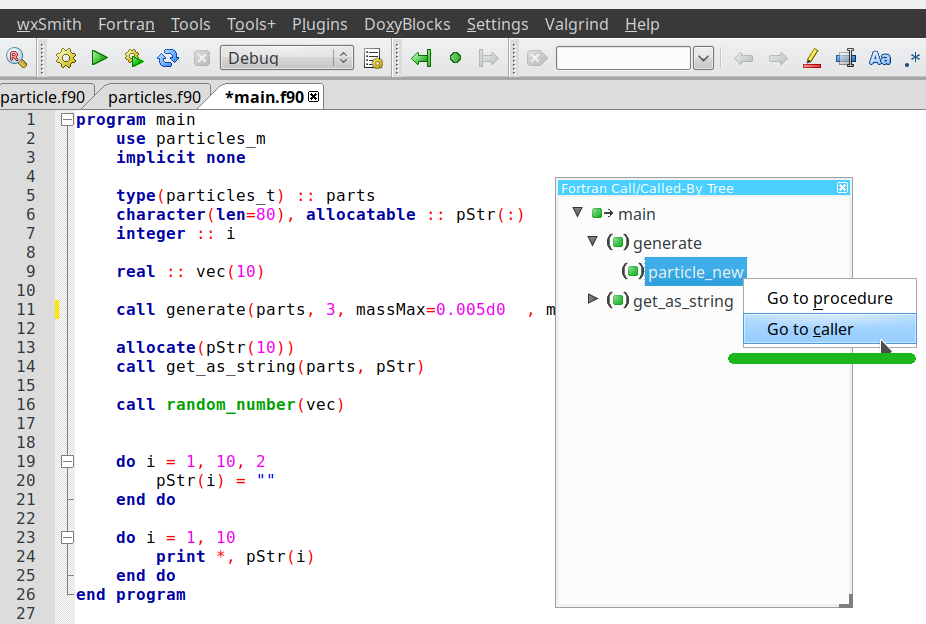
Code Blocks Ide For Fortran Cbfortran

Fortran An Overview Sciencedirect Topics
Binf Gmu Edu
Orengonline Com

How To Allocate An Array In Fortran Youtube

Fortran Wikipedia
Odnature Naturalsciences Be
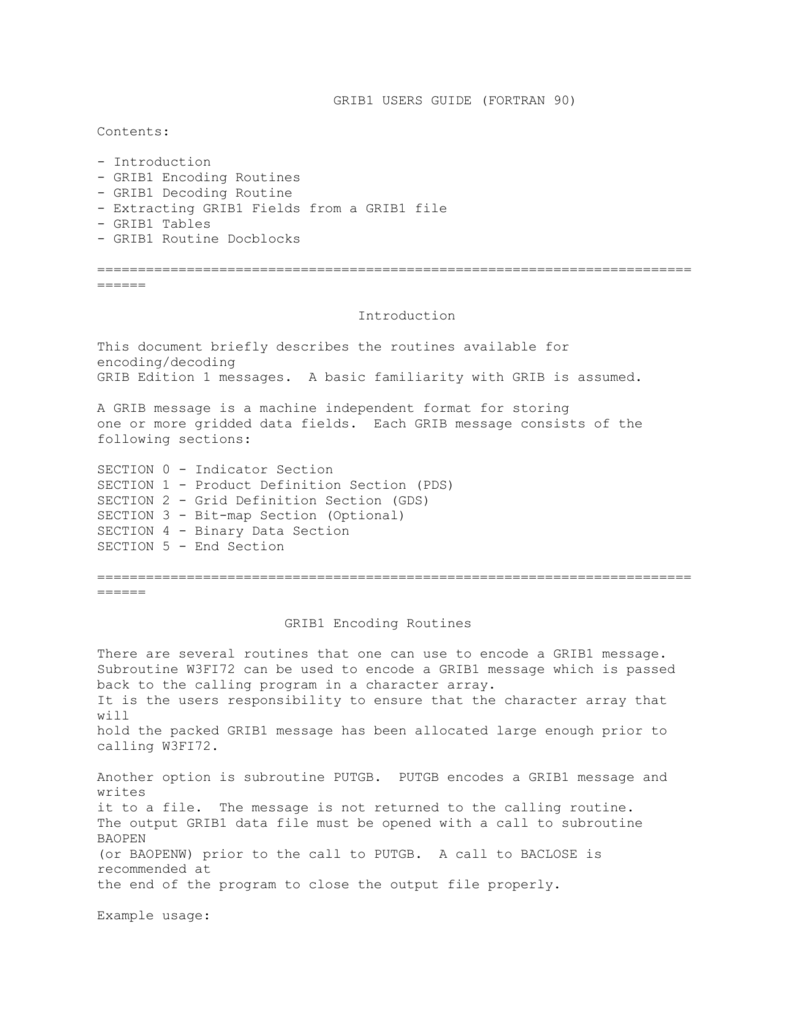
Grib1

Fortran 90 Tutorial Pdf
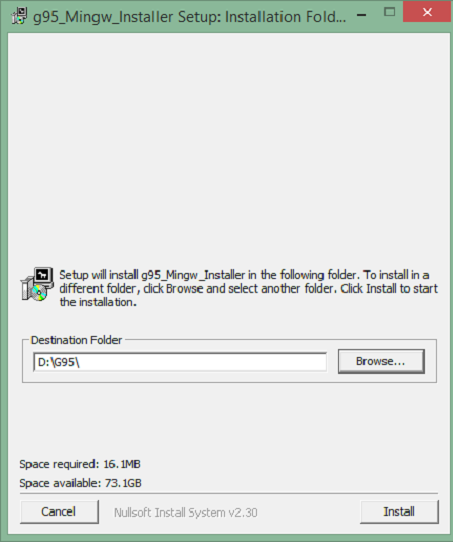
Fortran Overview
Variable Length Allocatable String Array Issue 245 Jacobwilliams Json Fortran Github

Passing Arrays To Subroutine In Fortran Youtube

Difficulty Reading 2d Character Array Variable From Netcdf File In Fortran Stack Overflow
Analyzing Stock Price Time Series With Modern Fortran Part 2 By Milan Curcic Modern Fortran Medium
Pgroup Com
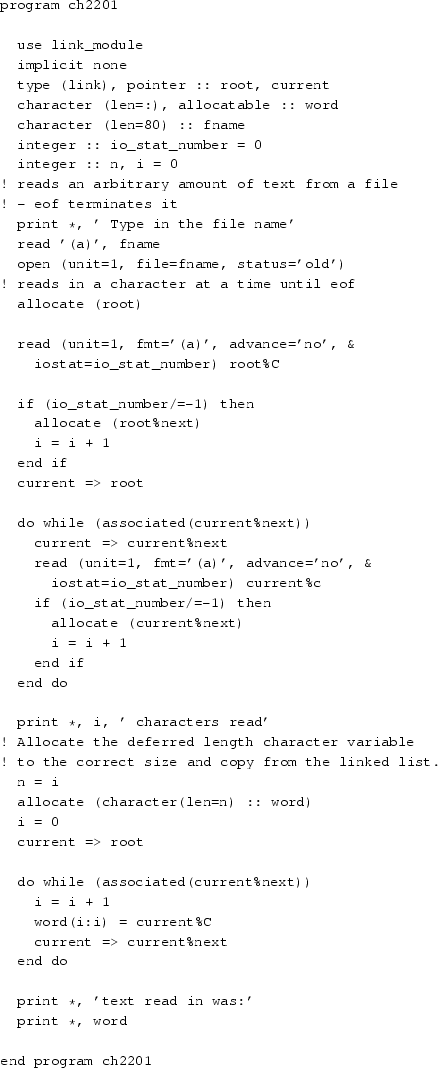
Data Structuring In Fortran Springerlink
Fortran s Org

Intel Fortran Character Pointer Corruption When Enabling Openmp Stack Overflow

Fortran Programming Tutorials Revised 015 Characters Strings String Arrays Youtube

Intel Fortran Programmer S Reference Nscl Docs Page
1
People Sc Fsu Edu
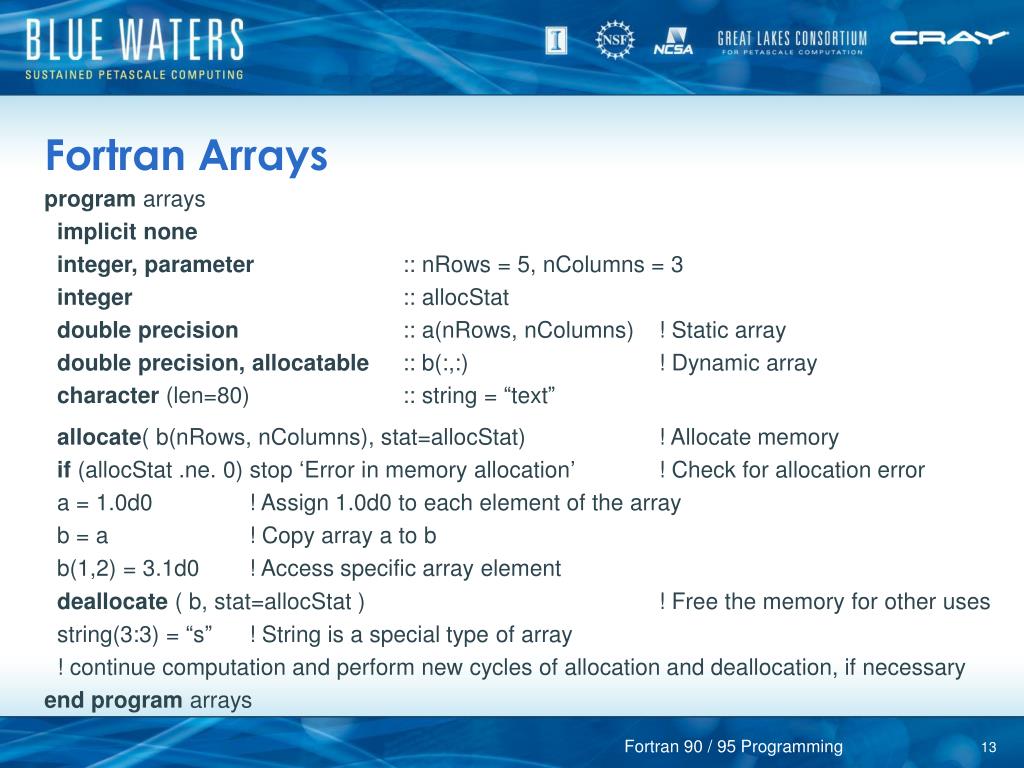
Ppt Fortran 90 95 Programming Victor Anisimov Ncsa Powerpoint Presentation Id

C Malloc Array Code Example
Ic Unicamp Br

How To Dynamically Allocate An Array C Code Example

Create Dynamic Array C Code Example
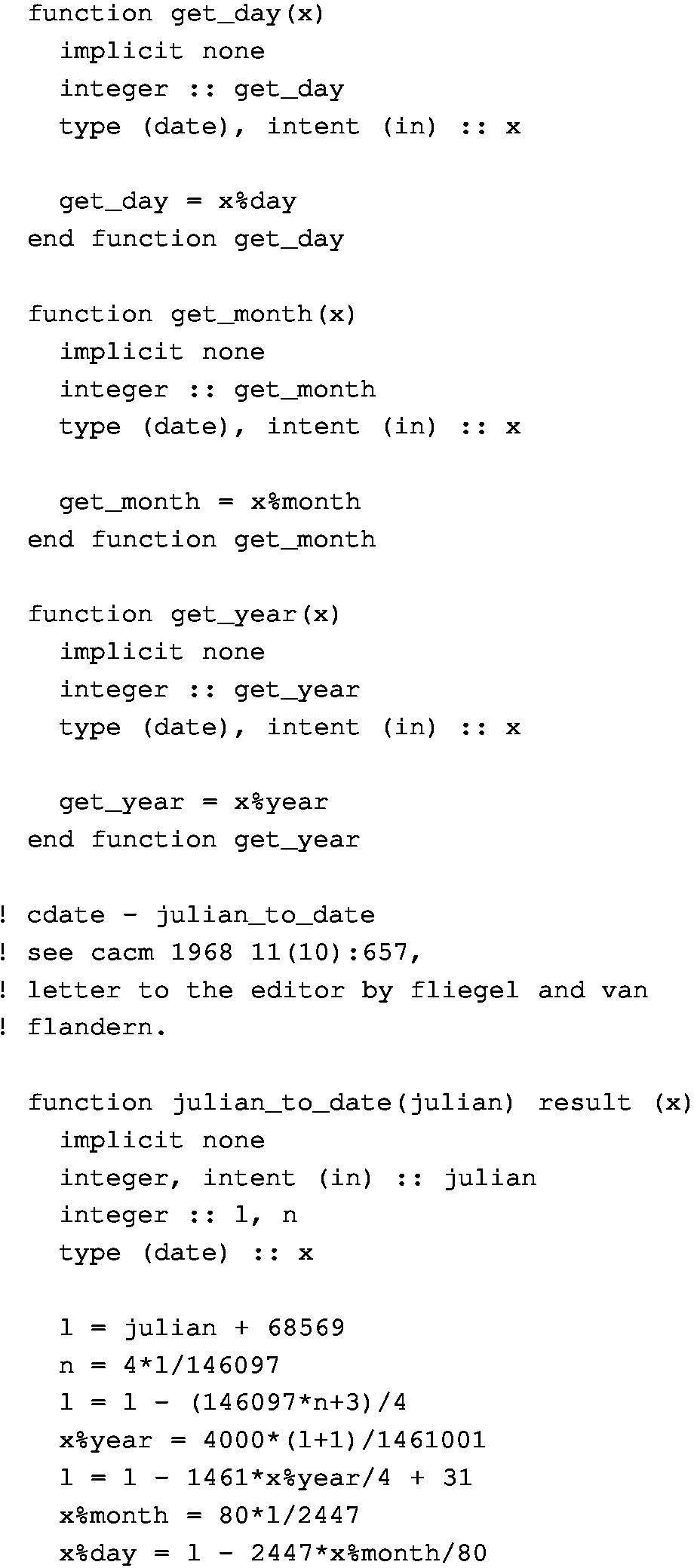
Data Structuring In Fortran Springerlink

無料ダウンロード Fortran Allocate
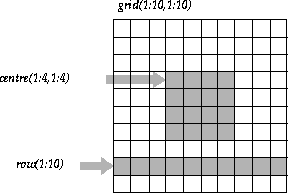
Introduction To Fortran 90 Pointer Variables Qub

Double Pointer Malloc In C Code Example
Csc Fi
Danysoft Com

Why Does A Subroutine With An Array From A Use Module Statement Give Faster Performance Than The Same Subroutine A Locally Sized Array Stack Overflow
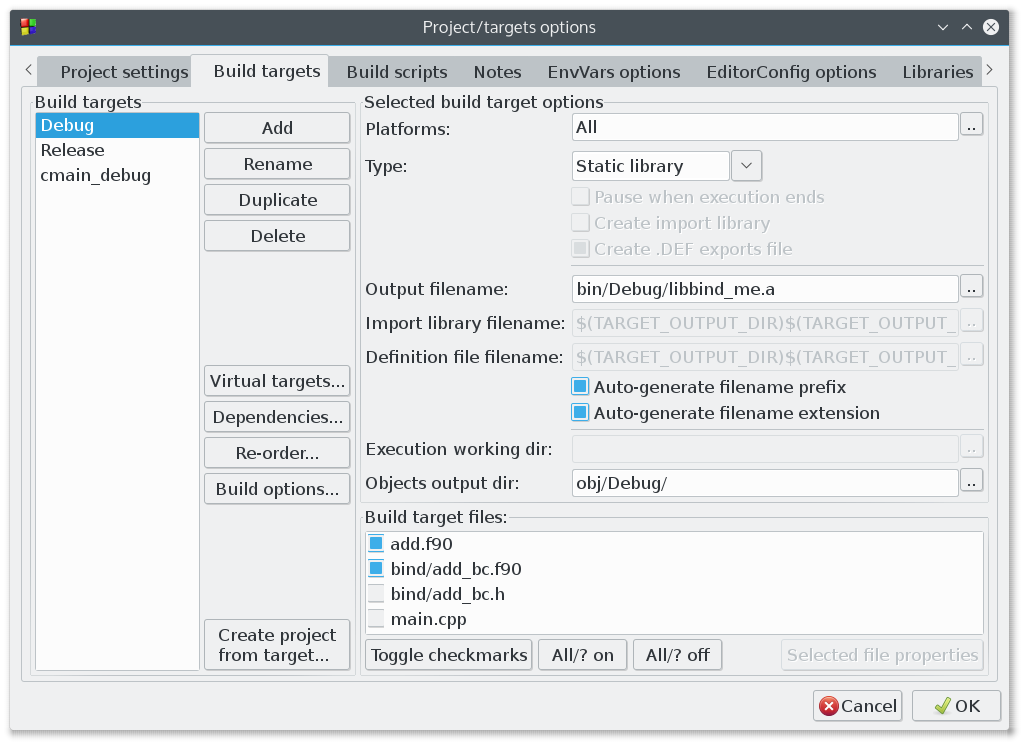
Bindto User Guide Cbfortran

Allocate Multiple Arrays With Single Shape Stack Overflow

Solved Debug Issue Relating To Allocatable Variables In User Defined Type Constructs Status Intel Communities
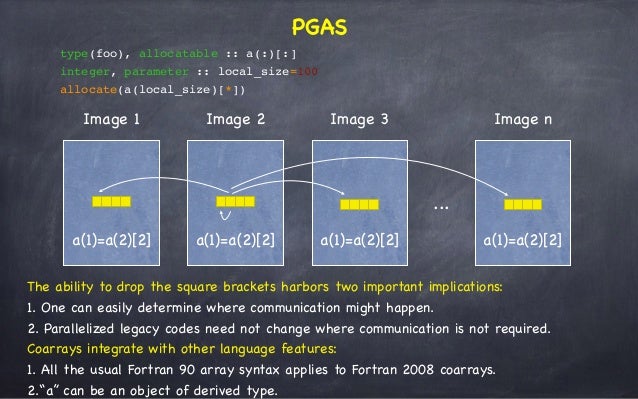
Towards Exascale Computing With Fortran 15
Ibm Com
Issue With F2py In Numpy 1 13 When Character Arrays Appear In A Callback Function Issue Numpy Numpy Github
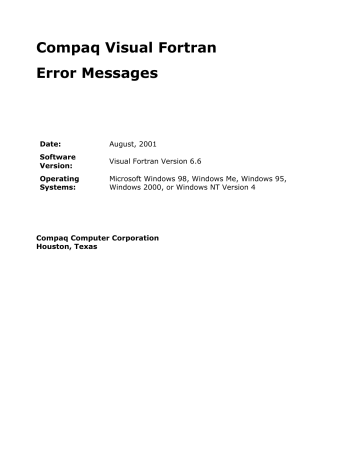
Compaq Visual Fortran Error Messages Manualzz

Automated Fortran C Bindings For Large Scale Scientific Applications

Analyzing Stock Price Time Series With Fortran Arrays Part 2 Manning

Allocatable Arrays Created With Incorrect Rank In Sun Studio 12 1 Oracle Tech

Fortran Sigsegv After Successfully Creating Array Of Pointers Stack Overflow
Oca Eu
J3 Fortran Org

Returning A Varying String Acm Sigplan Fortran Forum

Data Types In Text Chapter 5 1 Outline
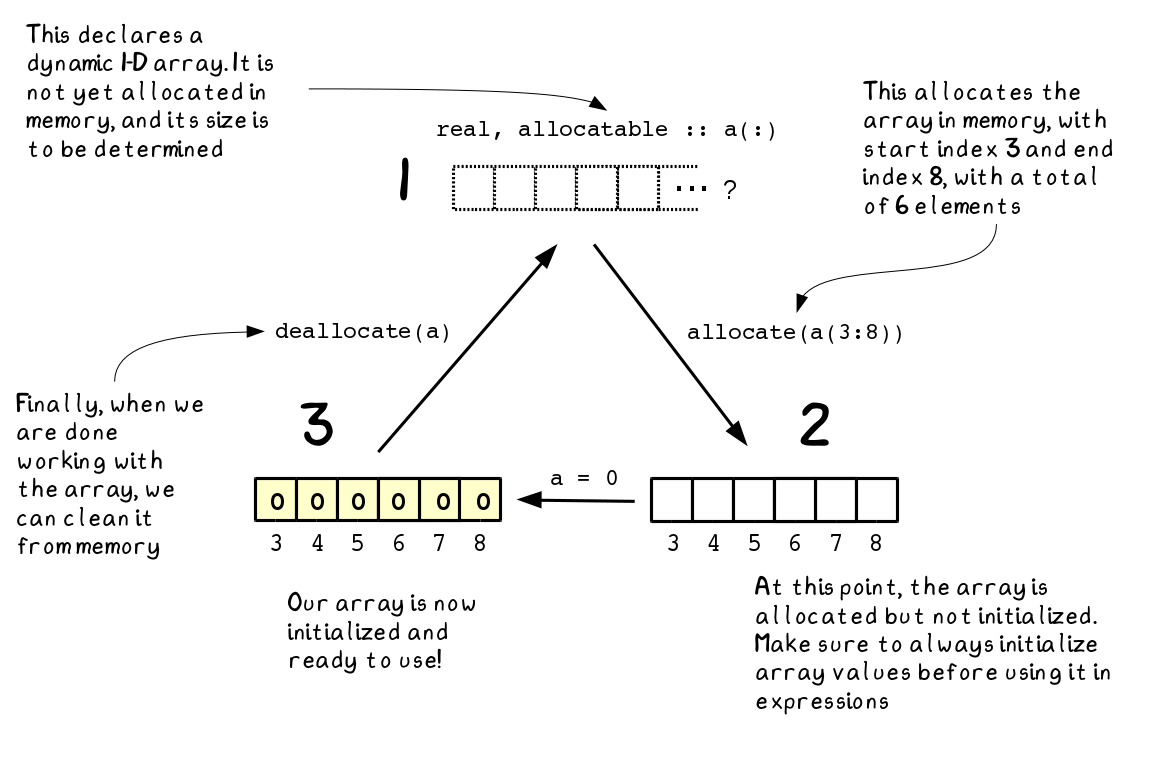
Analyzing Stock Price Time Series With Modern Fortran Part 2 By Milan Curcic Modern Fortran Medium

Character Arrays Vs Strings In Fortran The Craft Of Coding
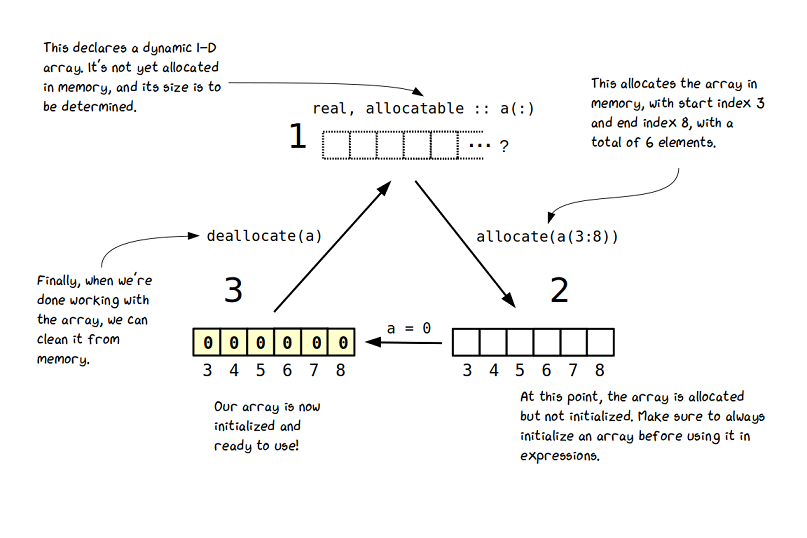
5 Analyzing Time Series Data With Arrays Modern Fortran Building Efficient Parallel Applications
Link Springer Com
Levich Ccny Cuny Edu
1
How Memory Is Allocated To 1d And 2d Array In C Quora

Modern Fortran By Example 5 Arrays And Plotting Part 1 Youtube

7 1 11 Arrays

6 1 Introduction Evolution Of Data Types Fortran
Slac Stanford Edu

Chapter 6 Chapter 6 Data Types Data Types A Data Type Defines A Collection Of Data Objects And A Set Of Predefined Operations On The Objects Type Ppt Download
Personalpages Manchester Ac Uk
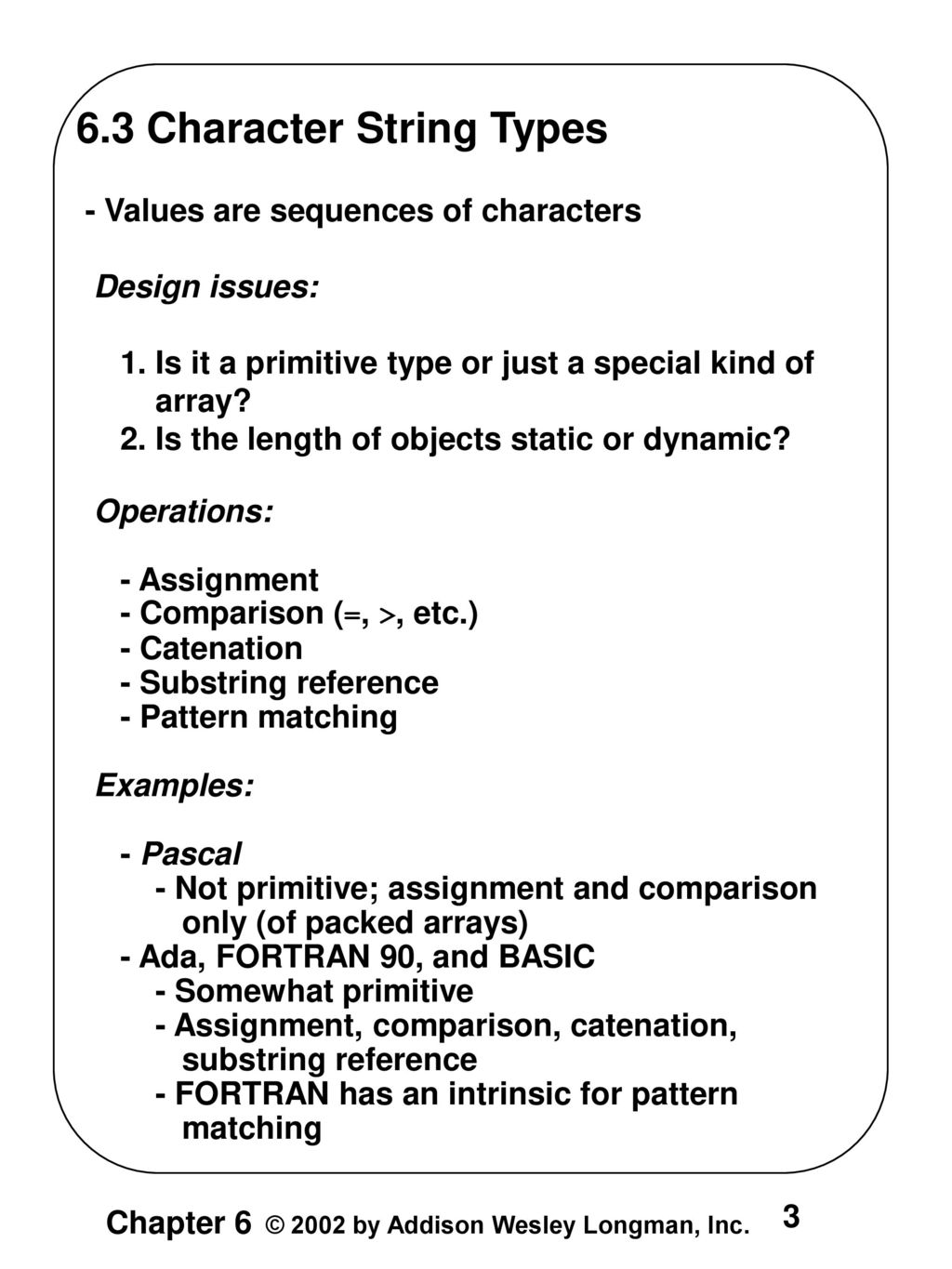
6 1 Introduction 6 2 Primitive Data Types Evolution Of Data Types Ppt Download
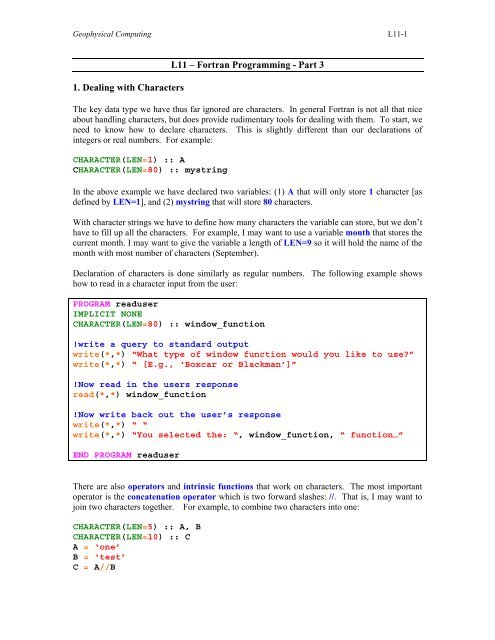
L11 Fortran Programming Part 3 1 Dealing With Characters

Fortran An Overview Sciencedirect Topics
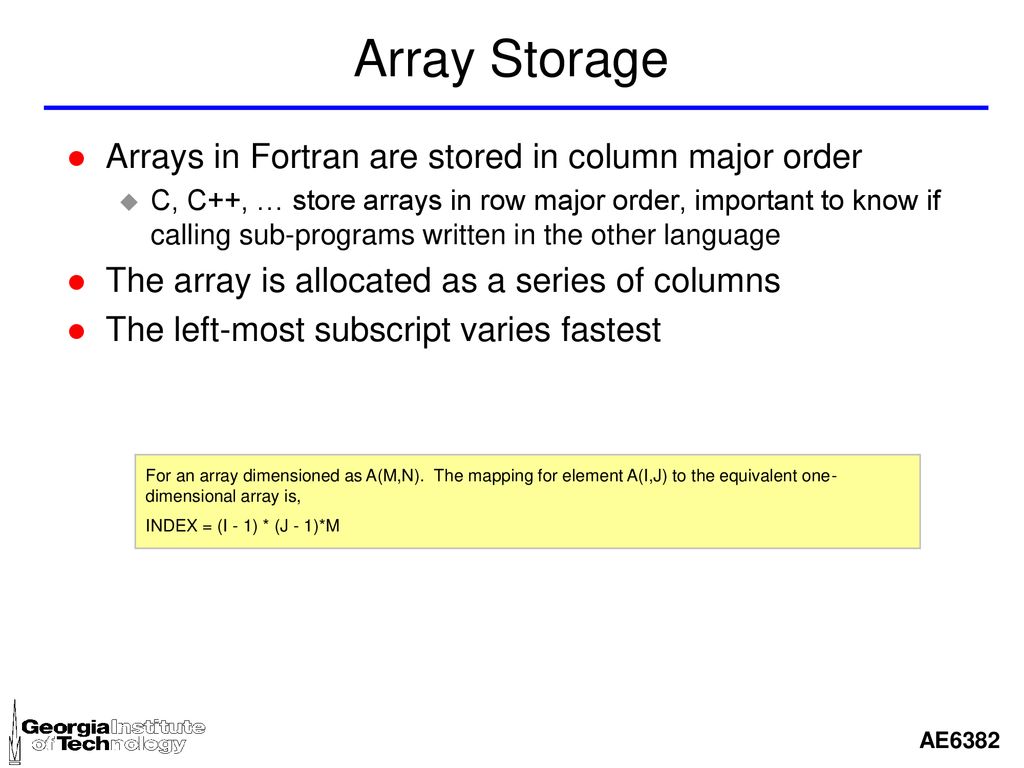
History Of Computing Fortran Ppt Download

Write Array Of Char To File In C Code Example
1
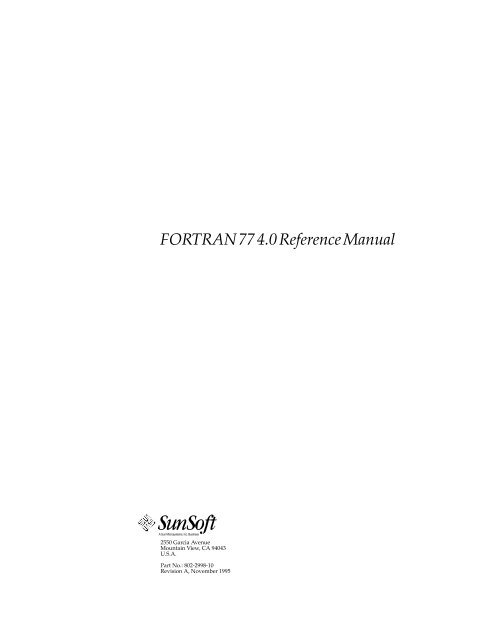
Fortran 77 4 0 Reference Manual
Phy Ohio Edu
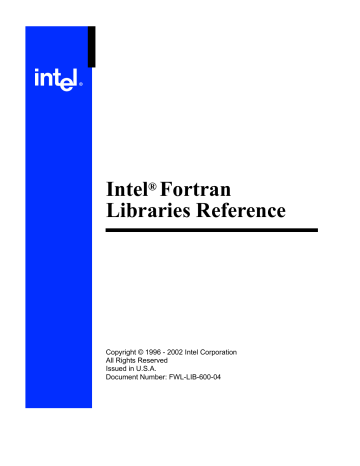
Intel Fortran Libraries Reference Maxloc Array Mask Manualzz
Support Allocatable Character Variables On Get Command And Get Command Argument Issue 178 J3 Fortran Fortran Proposals Github
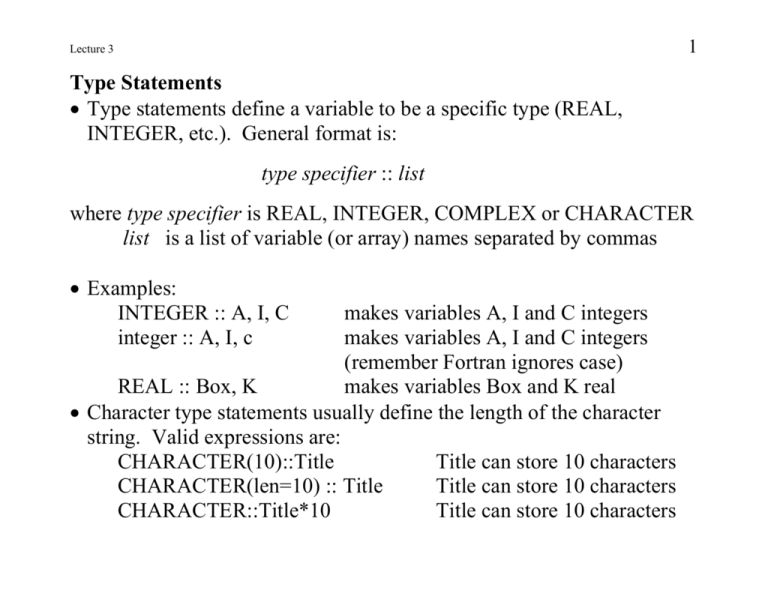
Fortran Formula Tranlastion
Www2 Southeastern Edu
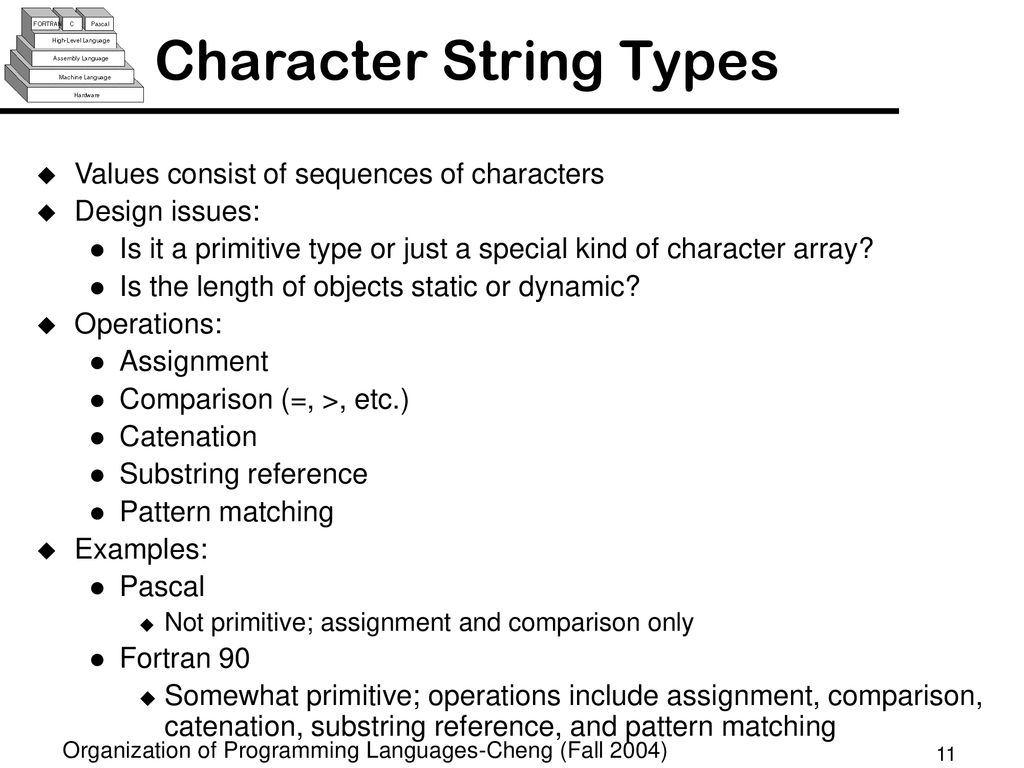
Chapter 6 Exploring Types And Equivalence Ppt Download

Solved 5 Arrays To Declare An Array You Need An Array Chegg Com

Chapter 3 Fortran Program Interfaces

Data Types Chapter 6 Cmsc 331 Some Material

Parameterized Derived Types In Fortran Introduction Qmul Its Research Blog
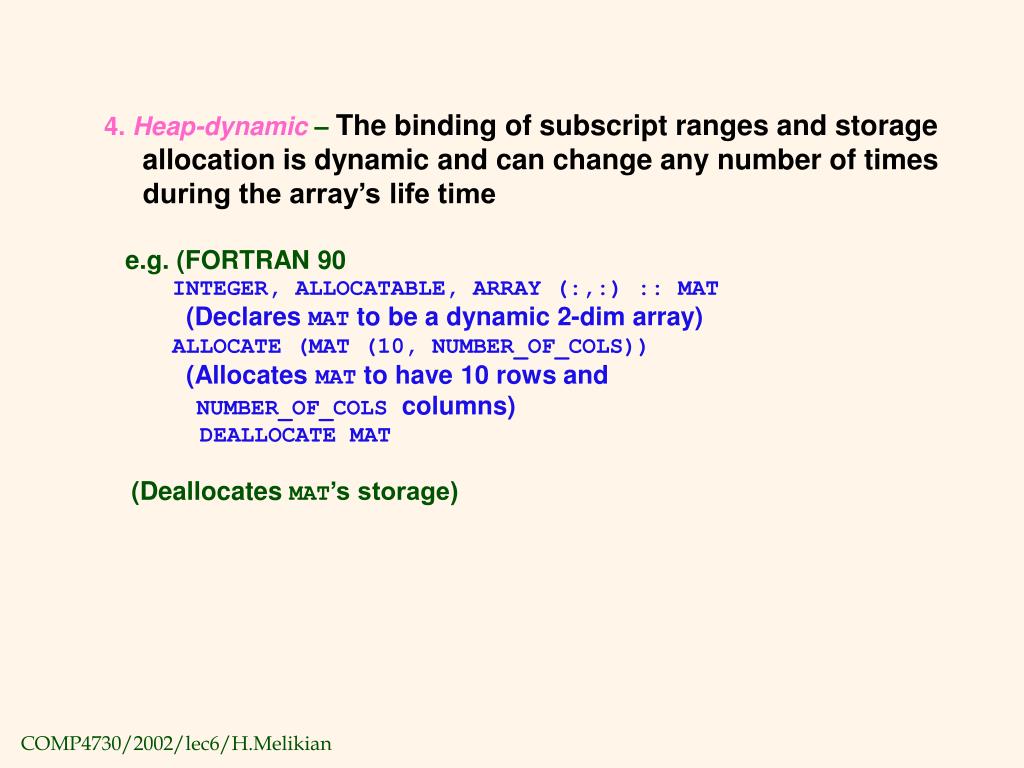
Ppt Data Types Powerpoint Presentation Free Download Id
Fortran s Org

Ffkddqubell1jm
Www Users York Ac Uk

Fortran Dynamic Arrays
Cs Wmich Edu
Github Szaghi Stringifor Strings Fortran Manipulator With Steroids

Solved Allocatable Character Problem Intel Communities
String Handling Routines Issue 69 Fortran Lang Stdlib Github

Difficulty Reading 2d Character Array Variable From Netcdf File In Fortran Stack Overflow

Fortran Tutorial
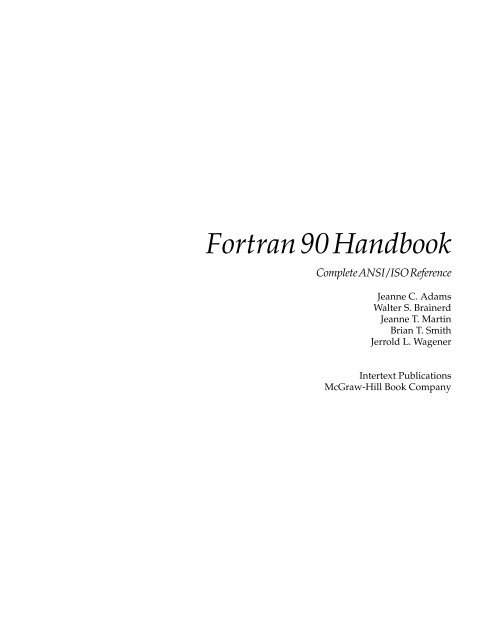
Fortran 90 Handbook
Variable Length Allocatable String Array Issue 245 Jacobwilliams Json Fortran Github

Fortran Programming Tutorials Revised 024 Formats Arrays Allocate Limits Of Int Youtube
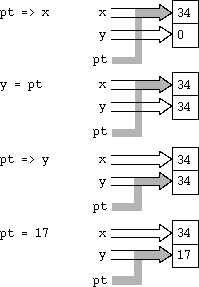
Introduction To Fortran 90 Pointer Variables Qub
Home Chpc Utah Edu
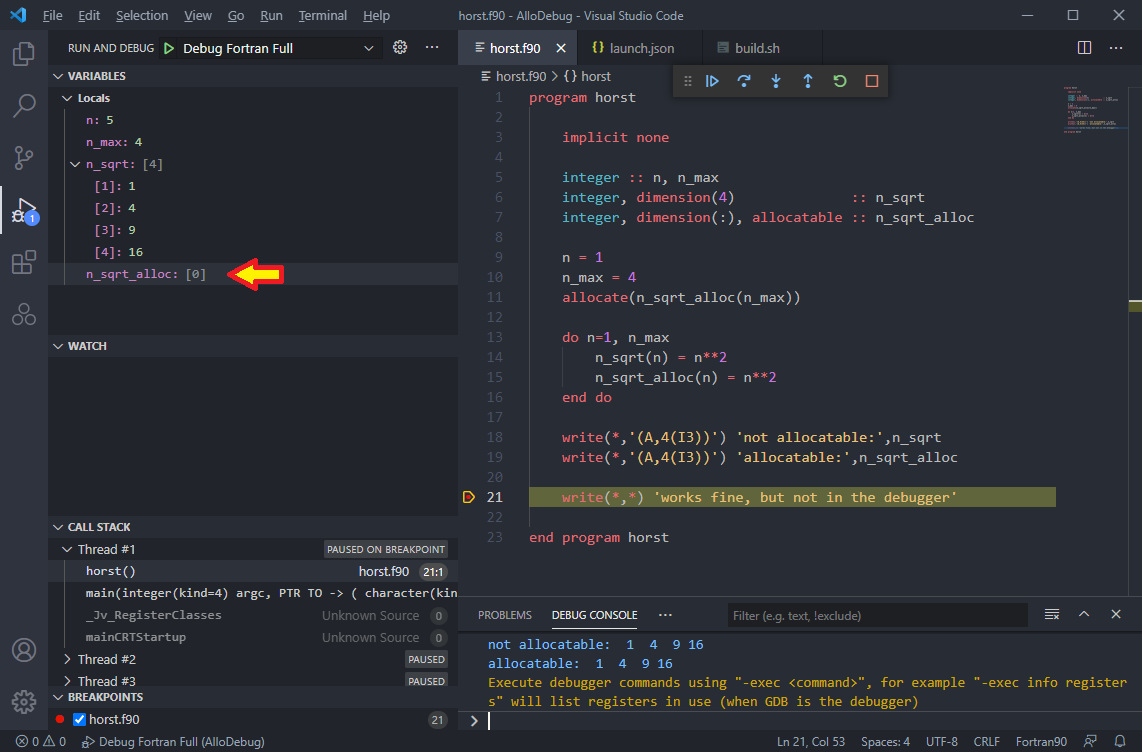
Gdb Debugger Allocatable Arrays Not Shown Githubmemory

19 May 21 Fortran 9095 Programming Victor Anisimov

Automated Fortran C Bindings For Large Scale Scientific Applications



